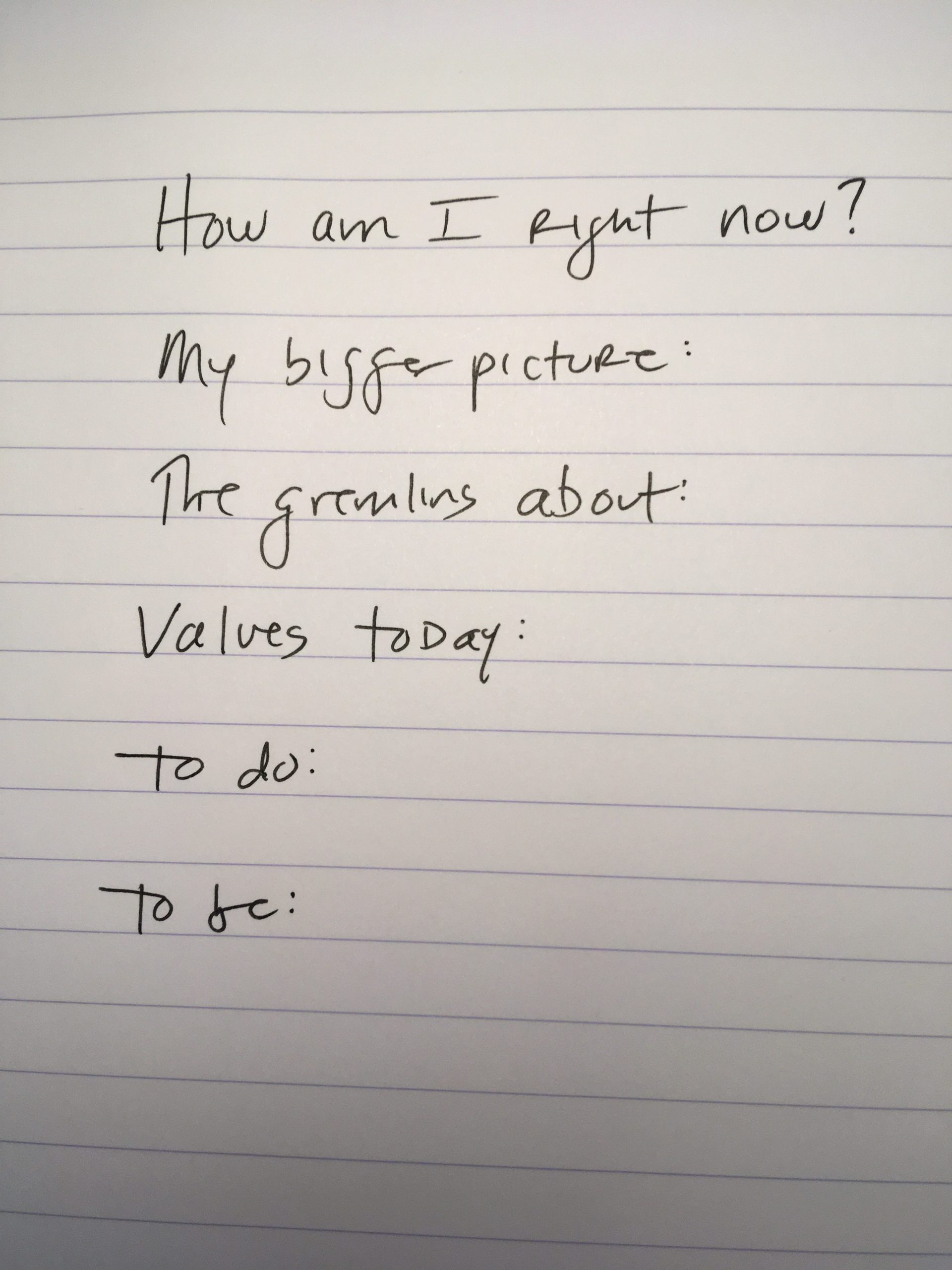
Sometimes you can do all the mental work to get yourself into the right head space only to find it disappear at a whim –- a trigger that sets you off in some way: an email, a colleague, a smell!
Will remembers a particularly challenging time as a lecturer when, away from work, he could feel really good about the job and the possibilities it offered, but then, somewhere between his bike into work and arriving at the office, a sinking feeling would emerge. His usual response was to get a coffee and lose himself in emails – the more you write, the more you get back – an easy way to feel some immediate gratification. But the sinking feeling didn’t go away.
At the time, he was in the early stages of coaching training, and he thought, ‘Hang on, there are some questions I could be asking myself at the start of each day that might help me approach it differently.” That’s when ‘the perfect day’ came about: a system to set himself up to have a perfect day every day. (At the time, one of his kids’ favourite books was called A Perfect Day For It). Asking himself a series of questions at the start of the day reoriented where he put his attention. He would spend about five minutes on them and write his answers on a post-it note. If something triggered him during the day, he’d come back to the post-it note to remember what he was committed to, including how he wanted to be.
He would keep the note with him, to be able to draw on at any time during the day. Once, when in the middle of a meeting the sinking feeling came over him, he read the post-it in his notebook, realigned and felt notably more engaged and satisfied. Interestingly, keeping the post-its over time also led to a sort of ‘mood diary’ which was interesting to track, in order to see patterns and open the possibility of changing them.
Here are the questions Will used. You may notice how they build on material we cover in our retreats, workshops and WriteClubs:
- Ask yourself: how am I right now? Physically, mentally, emotionally?
- Tap into your bigger picture – your personal vision of life, sense of purpose, intention. What word or sentence captures it for you? Remind yourself of that. Bring it alive, now.
- Notice what gremlins are about the place, lurking, waiting to come out for the day. Write down their names/messages. Do they need acknowledging, need some attention? Perhaps make a time to explore them further and, for the moment, say ‘not now’. (If there are none: great!)
- What values will you honor today, will be brought to life in the day ahead? What is important to you today?
- What ‘to do’ goals do you have for the day? Be real: what would be satisfying and bring a sense of completion to the day?
- What are your ‘to be’ intentions? What three things are you going to say ‘yes’ to today? And what are you saying ‘no’ to?
- Any other questions that would be helpful…
Of course, it is provocative to call this ‘the perfect day’. The purpose is to point to the possibility, and invite you to be open to the possibility, that having a good day is not dependent on the ‘stuff’ that happens. These days, Will might rename it ‘a day of possibility’ – to quote the wonderful poet (and so much more) David Whyte who wrote of the tiny disciplines of everyday life: “We wake up every day into an astonishing horizon of hospitality and possibility.”
Will offers this practice in the spirit of experimentation. Rather than reflect on how or why this might work, how about designing a version of the following for yourself, testing it out every day for two weeks, and seeing how it helps? You may do as Will did and answer the questions as soon as you get to your desk in the morning, or it may be you ask yourself the questions while travelling into work (or clearing the kitchen table of breakfast dishes so you can make it your office for the day), while the kettle is boiling, or just in a moment of pause before you get into what you are wanting to do. How would you like to set yourself up to begin?
NEXT: A-, B- & C-Time
